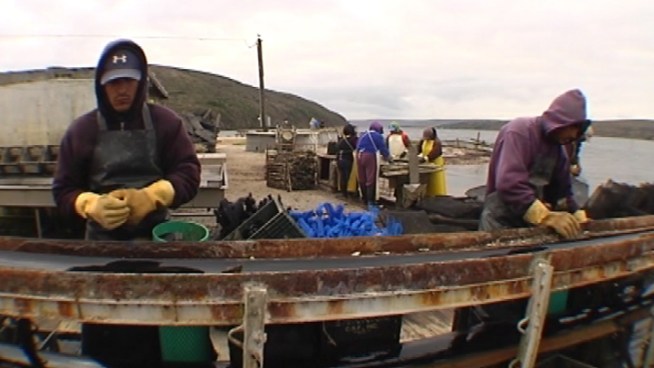Drake’s Bay Oyster Farm Fights to Stay Open
The future of the company is now in the hands of three judges
The owners of Drake’s Bay Oyster Company on Tuesday asked a Federal Appeals Court to grant it an injunction to remain in business while the case plays out in court.
Attorneys for Cause of Action, the government watchdog group representing the oyster farm, appeared before a three-judge panel in the 9th Circuit Court of Appeals in San Francisco.
The group is appealing then-Interior Secretary Ken Salazar’s decision in November to refuse to extend the oyster company’s lease on National Park land.
The 9th circuit is reviewing a U.S. District court’s refusal to grant the oyster farm a preliminary injunction, halting the federal closure order. In the meantime, the oyster farm which employs 30 people continues to operate on a temporary emergency order.
“We hope the decision will come down that we get the injunction,” said Kevin Lunny, co-owner of Drakes Bay Oyster Company. “We continue to plant our oysters and we continue to plant food for the San Francisco Bay Area.”
In court Tuesday, attorneys for Lunny laid out their case that Salazar relied on faulty scientific data in order to make his decision. But Federal judge Paul Watford questioned whether Congress had granted Salazar the power to make the decision at his own discretion.
“At the end of the day,” said Watford, “the secretary said the more important objective is to give effect essentially to Congress’ intent that this area be returned to wilderness status.”
Attorneys for the Department of Justice, which is defending Salazar’s decision, echoed that the former interior secretary was within his right to end the farm’s lease.
“His decision was based on the incompatibility of commercial activities in wilderness on a policy basis,” said government attorney David Gunter, “not on any disputed science.”
The panel of judges didn’t immediately issue a ruling, and has no timetable for issuing its decision. Meanwhile, strange bedfellows have come to Lunny’s cause. Famed chef Alice Waters has filed a brief in support of the farm, and Republicans attached a proposal to extend the farm’s lease twenty years, to a proposed bill to open the Keystone Pipeline in Alaska.
“We’re appreciative of anybody who be willing to stand up for what’s right,” responded Lunny. Environmental groups who have called for the oyster operation’s removal say the case could set a precedence for groups hoping to open National Park lands to commercial enterprises.
“There are definitely special interests out there who are not looking out for the American people, “said Neal Desai of the National Parks Conservation Association, which supports the farm’s removal. If Lunny prevails at the federal appeals court, the case would return to the same Oakland U.S. District Court which denied the oyster farm’s initial request for an injunction.
Standing out front of the federal court, dressed in a suit and tie, Lunny considered the long legal road ahead.
“Our livelihood’s threatened right now by the fact that we may or may not be able to continue farming,” Lunny said.

